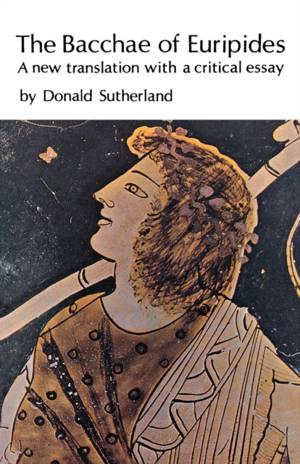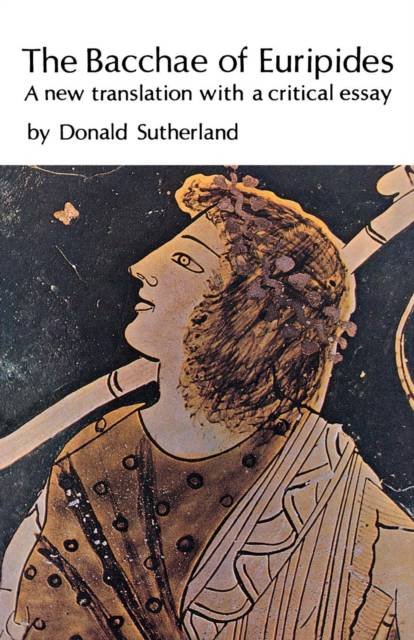
- Retrait gratuit dans votre magasin Club
- 7.000.000 titres dans notre catalogue
- Payer en toute sécurité
- Toujours un magasin près de chez vous
- Retrait gratuit dans votre magasin Club
- 7.000.0000 titres dans notre catalogue
- Payer en toute sécurité
- Toujours un magasin près de chez vous
45,95 €
+ 91 points
Format
Description
This new translation of The Bacchae--that strange blend of Aeschylean grandeur and Euripidean finesse--is an attempt to reproduce for the American stage the play as it most probably was when new and unmutilated in 406 B.C. The achievement of this aim involves a restoration of the "great lacuna" at the climax and the discovery of several primary stage effects very likely intended by Euripides. These effects and controversial questions of the composition and stylistics are discussed in the notes and the accompanying essay.
Spécifications
Parties prenantes
- Auteur(s) :
- Traducteur(s):
- Editeur:
Contenu
- Nombre de pages :
- 154
- Langue:
- Anglais
- Collection :
Caractéristiques
- EAN:
- 9780803251946
- Date de parution :
- 01-03-68
- Format:
- Livre broché
- Format numérique:
- Trade paperback (VS)
- Dimensions :
- 136 mm x 202 mm
- Poids :
- 181 g

Les avis
Nous publions uniquement les avis qui respectent les conditions requises. Consultez nos conditions pour les avis.






